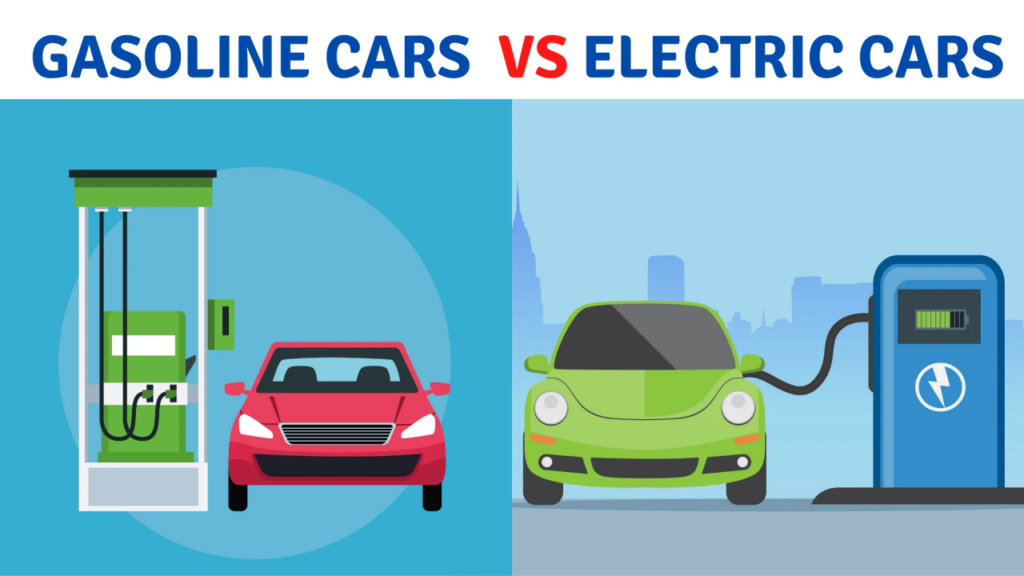Ndërsa bota po lëviz drejt formave më të pastra dhe më të qëndrueshme të transportit, një nga debatet më të mëdha në industrinë automobilistike është krahasimi mes makinave elektrike (EV) dhe makinave me benzinë ose naftë. Secila ka përparësitë e veta dhe zgjedhja varet kryesisht nga nevojat personale, zakonet e drejtimit dhe shqetësimet mjedisore. Në këtë artikull, do të shqyrtojmë dallimet kryesore për t’ju ndihmuar të vendosni se cila është alternativa më e përshtatshme për ju.
Bazat: Cili është ndryshimi?
Në thelb, ndryshimi kryesor qëndron te burimi i energjisë:
- Makina me karburant: Përdorin motorë me djegie të brendshme (ICE), të cilët djegin benzinë ose naftë për të prodhuar energji. Ky proces çliron gaze ndotëse.
- Makina elektrike: Përdorin motorë elektrikë të furnizuar nga bateri të rikarikueshme. Ato nuk djegin karburant dhe nuk kanë emetime nga marmita. Karikohen përmes prizave elektrike ose stacioneve të karikimit.
Ndikimi Mjedisor: Cila është më e mirë për planetin?
Ky është një nga arsyet kryesore pse shumë njerëz po konsiderojnë kalimin te makinat elektrike.
- Makina me karburant: Prodhon emetime si dioksid karboni (CO₂), okside azoti (NOx) dhe grimca të imëta, të cilat kontribuojnë në ndotjen e ajrit dhe ndryshimet klimatike. Edhe me përmirësimet teknologjike, ato mbeten ndotëse.
- Makina elektrike: Nuk prodhojnë emetime gjatë përdorimit. Kur karikohen me energji të rinovueshme (diellore, erë), ndikimi i tyre mjedisor është shumë i ulët. Prodhimi i baterive ka ndikim më të lartë fillestar, por ky po ulet me përmirësimin e teknologjisë dhe përdorimin e energjisë së gjelbër.
Verdikt: Në përgjithësi, makinat elektrike janë më miqësore me mjedisin, sidomos me rritjen e energjisë së rinovueshme dhe teknologjive më të pastra të prodhimit.
Kostot: Cila është më ekonomike?
Kostoja totale e pronësisë është një faktor kyç.
- Makina me karburant: Zakonisht kanë çmim fillestar më të ulët, por kërkojnë më shumë mirëmbajtje (ndërrim vaji, riparime motori) dhe shpenzime të vazhdueshme për karburant.
- Makina elektrike: Kanë çmim fillestar më të lartë, por shpesh përfitojnë nga subvencione dhe lehtësime fiskale. Mirëmbajtja është më e ulët (pa vaj, më pak pjesë lëvizëse) dhe energjia elektrike zakonisht kushton më pak se karburanti.
Verdikt: Makina me karburant janë më të lira në fillim, por makinat elektrike zakonisht kushtojnë më pak në afat të gjatë.
Autonomia dhe Komoditeti: Cila është më praktike?
- Makina me karburant: Autonomi e madhe (300–500 milje/480–800 km), rrjet i gjerë pikash furnizimi dhe mbushje e shpejtë.
- Makina elektrike: Autonomia ka përparuar ndjeshëm (250–350 milje/400–560 km). Sfidë mbetet infrastruktura e karikimit, sidomos në zona rurale. Karikimi i shpejtë mund të arrijë 80% në rreth 30 minuta, ndërsa karikimi në shtëpi është më i ngadaltë.
Verdikt: Makina me karburant kanë avantazh për udhëtime të gjata, por makinat elektrike po e ngushtojnë diferencën.
Performanca: Cila ofron përvojë më të mirë drejtimi?
- Makina me karburant: Përvojë tradicionale me zhurmë motori dhe ndërrim marshesh; të preferuara nga entuziastët e makinave sportive.
- Makina elektrike: Drejtim i qetë, pa zhurmë dhe me përshpejtim të menjëhershëm falë çift-rrotullimit instant. Shumë EV ofrojnë performancë të lartë dhe reagim të shpejtë.
Verdikt: Makina elektrike shkëlqejnë në përshpejtim dhe qetësi; makinat me karburant tërheqin ata që preferojnë ndjesinë tradicionale.
Mirëmbajtja: Cila është më e lehtë?
- Makina me karburant: Kërkojnë mirëmbajtje të rregullt dhe kanë më shumë komponentë të ndërlikuar.
- Makina elektrike: Më pak pjesë lëvizëse, pa sistem shkarkimi, pa ndërrim vaji; konsum më i ulët i frenave falë frenimit rigjenerues. Zëvendësimi i baterisë është i rrallë dhe zakonisht pas shumë vitesh.
Verdikt: Makina elektrike janë përgjithësisht më të lehta dhe më të lira për t’u mirëmbajtur.
Cila është e duhura për ju?
Nuk ka një përgjigje universale—zgjedhja varet nga nevojat tuaja:
- Zgjidhni një makinë elektrike nëse: kërkoni emetime të ulëta, kosto të reduktuara mirëmbajtjeje dhe teknologji moderne; ideale për qytet dhe udhëtime të shkurtra.
- Zgjidhni një makinë me karburant nëse: keni nevojë për autonomi të madhe, komoditet maksimal në udhëtime të gjata ose çmim fillestar më të ulët; veçanërisht e përshtatshme në zona me infrastrukturë të kufizuar karikimi.
Industria automobilistike po evoluon me shpejtësi. Ndërsa makinat elektrike përfaqësojnë të ardhmen, makinat me karburant do të vazhdojnë të kenë rol të rëndësishëm edhe për disa vite. Peshoni përparësitë dhe mangësitë sipas prioriteteve tuaja për të bërë zgjedhjen më të mirë.




